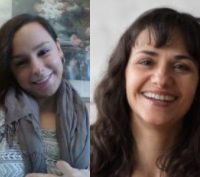Nobody likes rejection.
But some of us experience paralyzing, outsized emotional reactions to even the slightest hint of criticism or failure.
A smidge of questionable feedback that someone else might easily shrug off can feel unbearable and overwhelming for people with Rejection Sensitive Dysphoria (RSD).
Rejection Sensitive Dysphoria may sound like psychobabble, but for many who live with it, having a name for it has been revelatory. William Dodson, MD, a renowned psychiatrist who specializes in ADHD, ushered the term into popularity in recent years after noticing it was a common phenomenon among people with ADHD.
How do you know if you might be suffering from RSD? According to Dodson, “The question that can help identify RSD is, ‘For your entire life, have you always been much more sensitive than other people you know to rejection, teasing, criticism, or your own perception that you have failed?’”
If you’re anything like me, your answer to that question is a resounding, “Hell, yes!”
RSD has been affecting me since childhood. As a kid, if I perceived rejection, teasing, or feedback, I literally felt like I was dying. “You’re too sensitive,” I’d often hear in response to my reaction, which would further fuel my downward emotional spiral.
Family members learned to walk on eggshells around me to avoid sending me into a tailspin. I lost valuable friendships because of my hypersensitivity.
As I got older, I began to have intense crushes, but never let the object of my affection know because that could lead to rejection. As an adult, a stream of difficult feedback at a job I wasn’t entirely well-suited for helped propel me into a debilitating depression.
RSD has contributed to my tendency to be a people-pleaser and perfectionist in order to avoid the overwhelming feeling of falling short. It’s strained my relationships because I’ve struggled to accept any type of less-than-stellar feedback without being flooded with despair and shutting down.
Fortunately, there are several approaches to coping with RSD:
Name it to tame it.
Understanding that I suffer from an outsized perception of rejection has helped me maintain a more even keel. Knowing there’s a name for it, and that a significant percentage of people with ADHD also struggle with it, is incredibly comforting.
Yes, I still feel the sting of discomfort when I perceive a slight, but between starting ADHD medication and learning that RSD is a real phenomenon and part of the cluster of symptoms that come with ADHD, it’s gotten easier.
Learning about RSD has helped me make sense of seemingly disparate events from my past, like the way I spun out when my first love went unrequited, or why when anyone got upset with me for any reason, it felt like drinking shame from a fire hose. I still sometimes feel the intense pain of rejection, but I don’t stay trapped in it as long as I used to.
Change your physical state to shift your mental state.
Taking a brisk walk or doing a short yoga session when I’m starting to spiral signals to my brain that I’m safe, and I’m not experiencing an actual threat.
Meditation.
When I have an RSD flare-up, I can quickly spin into feeling like everything in my life is awful. One of my favorite guided meditations reminds me that we can experience more than one truth at a time; we can live simultaneously with both challenges and blessings. Honing the skill of zooming out of an RSD storm and remembering that the rejection we’re feeling is only one tree in a vast forest can be incredibly helpful.
Medication.
I haven’t personally tried medication for RSD, but according to Dr. Dodson, alpha agonists like Guanfacine have proven helpful in increasing emotional regulation. I have noticed that since starting a stimulant medication, my brain stays calmer and I’m more capable of having difficult conversations without spinning out into an RSD moment.
Pause before you react.
That space between thought and action or reaction is not only immensely important but is, in most cases, equal to the difference between acceptance and the manifestation of the very thing that those of us with RSD fear the most: rejection itself. When we allow our emotional dysregulation to get the best of us, people often respond by shutting down or becoming defensive.
Unfortunately, for those of us with RSD, these reactions only serve to reinforce what we have already come to believe: that we are failures, not good enough, or to put it bluntly, an outright proverbial mess and are therefore bound to disappoint other people in our lives. Thus, rejection becomes a self-fulfilling prophecy, which only reaffirms negative self-perceptions. This in turn can spiral into a negative feedback loop.
Put the actual or perceived rejection into perspective.
One of the most important questions I have asked myself during an RSD episode is the following:
In the larger scheme of things, does any of this truly matter? Moreover, so what if this particular person does not in some way approve of me? It is only one person in 7.5 billion. Why is my emotional stability and self-acceptance contingent upon this one person’s perception of me?
Time and time again, I have fallen into the mind trap of believing that a bad day, week, or month equals a proportionately bad life. I can snowball and make generalizations, creating connections between two or more events and circumstances that leave me questioning whether I am “doomed to struggle.”
Needless to say, this kind of thinking does me absolutely no good whatsoever and ultimately begs me to put certain things into some necessary greater perspective.
Recognizing the origins of RSD
Not surprisingly, the origins of RSD can be traced back to childhood. Recently, I read an article that mentioned that by the age of 12, children with either diagnosed or undiagnosed ADHD hear 20,000 more negative or hyper-critical messages than their non-ADHD peers. They then internalize these messages, believing that they are intrinsically flawed and begin to anticipate this disappointment, rejection, or disapproval from nearly everyone in their midst.
When I was a child, I did not struggle with overt hyperactive behaviors. I was not loud, boisterous, or a “chatterbox.” Rarely if ever did my parents receive any negative feedback regarding my conduct at school or anywhere else. In fact, I was quite the opposite of that stereotypically “out-of-control” child with ADHD—or at least on the surface. Instead, I presented as shy, cautious, and reserved. I was quiet and respectful toward authority figures.
However, because my ADHD symptoms were internal rather than external and manifested as bouncing from one idea to the next, becoming easily side-tracked by both internal and external stimuli, difficulty with organization and time management, and struggling with some forgetfulness due to being so swept away by the moment, I was a target for bullies and less-than-heartwarming comments from teachers who reprimanded me for my frequent daydreaming and general lack of focus on subjects that did not spark any outstanding interest in me.
In those early years, I would abandon my homework to write a story or play outside. Furthermore, I struggled with mathematics and was probably lagging one year behind in that area.
One of my earliest memories of being bullied in elementary school was for struggling with numbers and number concepts, in general. While waiting in line, one of my classmates turned to me and asked in a mocking tone: “Hey, Sarah, what is two plus two?”
“Um, four,” the five- or six-year-old me shot back, but deep down, I was well-aware that I found math challenging and struggled to grasp addition, subtraction, multiplication, division, and later on in my scholarly career, more advanced concepts like trigonometry and algebra. Mathematics was the bane of my academic existence, and the other children failed to empathize or simply understand my struggle with it.
Although I was never officially diagnosed with Dyscalculia, I resonate with the majority of the symptoms of it and continued to struggle with numbers well into my secondary school and college years—even with the help of well-intended peers and teachers.
As an adult, I have difficulty judging or measuring distance due to my not-so-stellar spatial skills. For instance, while driving, I will sometimes turn either prematurely or otherwise too late into a parking lot or onto the next street if I am even slightly unfamiliar with the location or with where I am going. This happens most often when I am not given a specific identifiable landmark that acts for me as a benchmark. When my GPS declares: in 400 meters, turn onto the next exit, I usually find myself muttering: I don’t even know what 400 meters looks like!
I also struggle with estimating the number of people or objects in a room or on a screen. My mind doesn’t automatically group them without some effort involved in doing so. In addition, I also find it difficult to rotate objects or buildings in my mind. These skills are indirectly related to a person’s mathematical abilities and performance. Later on, I discovered that students with ADHD tend to have higher rates of math learning disabilities compared to others (bingo!).
Regardless of the fact that math issues are not uncommon in the general population, however, I tend to nevertheless feel self-conscious of these Dyscalculic tendencies as well as issues related to having ADHD in general, outside of anything related to numerical or spatial skills. It is during these trigger moments especially, that I attempt to pause before reacting to any real or perceived judgment or criticism and remind myself of what my gifts and positive attributes are.
Sure, I would make a horrible architect, statistician, or engineer, but I am uncanny at reading other people as well as understanding why they do what they do and think how they think. I am also good at putting other people at ease, am empathic, can anticipate their reactions and needs without too much extraneous thought, and am wonderful at helping them to recognize and uncover their own strengths.
Furthermore, I am persistent because I am used to having to work a bit harder just to get it right and have learned the value of humility and grace, among other things. Last but not least, I am creative, have the ability to be flexible and think outside of the box (heck, sometimes I barely know where the box is), am good with crafting and sewing words together, and can make all sorts of connections between different sets of ideas. Maybe I wouldn’t have these skills had I not been born a highly sensitive person or a person with ADHD.
So, that brings me to one final point: capitalize on your strengths. Focus on what makes you not only unique but also utterly and unmistakably invaluable.
As people with RSD, it is all too easy to be painstakingly hard on ourselves and to expect others to be as equally hard on us, in turn.
Give that inner child what he or she did not readily receive and learn to become your own best friend first and foremost.
~
For more from Lynn and Sarah:









Read 21 comments and reply